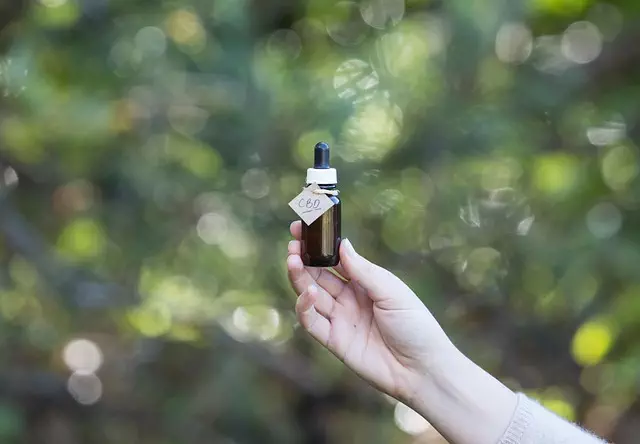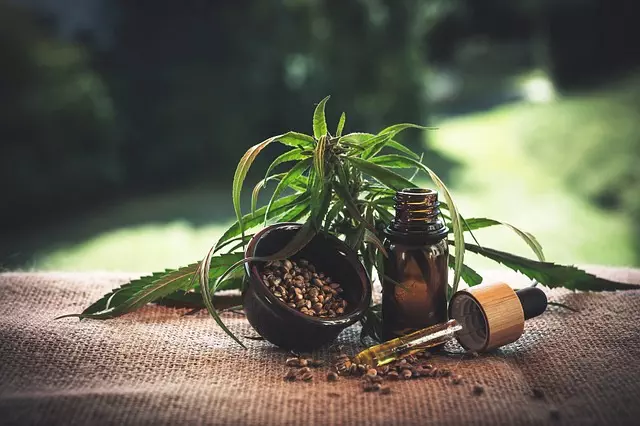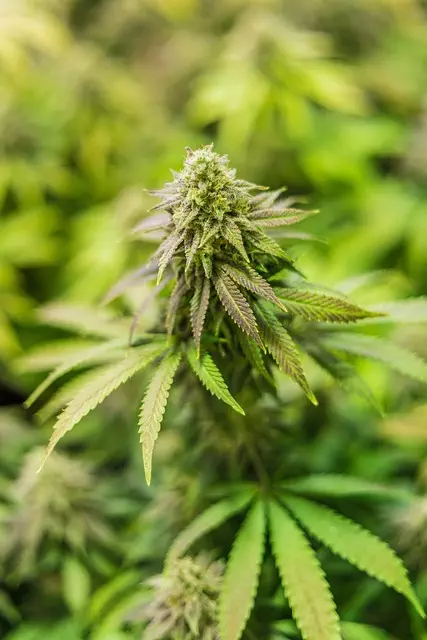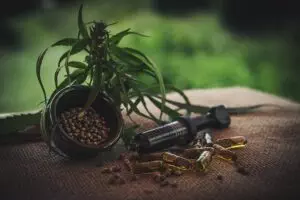Pure CBD Isolate is a highly concentrated form of cannabidiol (CBD) with 99% purity, stripped of other cannabinoids and terpenes through meticulous extraction. It offers therapeutic benefits without intoxicating effects but comes at a higher price point and requires precise dosage measurement for safety and efficacy. Advanced techniques like High-Performance Liquid Chromatography (HPLC) and gas chromatography-mass spectrometry (GC-MS) ensure its purity, potency, and safety by meeting strict quality standards. Measuring Pure CBD Isolate demands sophisticated methods due to its complex nature and the need for accurate differentiation from similar plant molecules. Adhering to robust industry standards and global regulations is crucial for product safety, quality, and consumer trust in this dynamic landscape. Future measurement technology innovations will enhance precision and efficiency in quantifying CBD products, fostering transparency and consumer confidence as the global CBD industry expands.
In the burgeoning market of CBD products, understanding and accurately measuring pure CBD isolate is paramount. This essential compound, derived from cannabis plants, offers a range of therapeutic benefits, making precise assessment crucial for both manufacturers and consumers. This article delves into the fundamentals of pure CBD isolate, highlighting why measurement matters, the key metrics to consider, analysis tools, industry standards, and future trends in this vital field.
Understanding Pure CBD Isolate: The Basics

Pure CBD isolate is a highly concentrated form of cannabidiol (CBD), derived from hemp plants through a meticulous extraction process. It’s essentially 99% pure CBD, stripped of all other cannabinoids, terpenes, and flavonoids. This purity makes it a popular choice for consumers looking to avoid any potential psychological effects associated with the presence of THC, the psychoactive component in cannabis.
Understanding the basics of Pure CBD Isolate is crucial when considering its use. It’s important to know that while it offers the therapeutic benefits of CBD without intoxicating effects, it may also come with a higher price point compared to other CBD products. Additionally, due to its potency, smaller dosages are required, ensuring precise measurement and administration for optimal efficacy and safety.
Why Measurement Matters for CBD Products

In today’s competitive market, consumers are increasingly seeking out natural, effective solutions for their well-being, which is where pure CBD isolate stands out. As a highly concentrated form of cannabidiol (CBD), it offers a precise and measurable dose of this beneficial compound. This level of precision is crucial when it comes to ensuring product quality and consistency, especially in the case of CBD products. Measurement matters because it allows for transparency in listing ingredients, serving sizes, and potency, which are all critical factors for consumers looking to make informed decisions about their health and wellness.
Moreover, accurate measurement enables manufacturers to maintain a standardized production process. This is particularly important when dealing with the complexities of cannabis compounds like CBD, where even minor variations can impact effectiveness. By utilizing precise measurement techniques, brands can guarantee that each batch of pure CBD isolate meets or exceeds expected standards, fostering trust among consumers who value reliable and effective products.
Key Metrics to Assess Purity and Quality

When assessing the purity and quality of Pure CBD Isolate, several key metrics come into play. One of the primary indicators is the presence or absence of impurities, such as pesticides, heavy metals, and other plant compounds not derived from hemp. High-performance liquid chromatography (HPLC) analysis is a powerful tool to detect these contaminants, ensuring that the isolate remains pure and free from any adverse substances.
Additionally, the potency of the CBD is a critical factor. This is typically measured in milligrams per milliliter (mg/ml) or percentage (e.g., 99% CBD). Through precise testing methods, manufacturers can confirm the concentration of CBD, guaranteeing that consumers receive the intended dose and experience the desired effects. High-quality Pure CBD Isolate should consistently meet these standards, providing customers with a safe and effective product.
Tools and Methods for Accurate Analysis

When it comes to accurately analyzing Pure CBD Isolate, a variety of tools and methods are at our disposal. Advanced techniques such as High-Performance Liquid Chromatography (HPLC) offer precise measurements of cannabinoid concentration, ensuring the product’s purity and potency. This method allows for the identification and quantification of various compounds, including cannabinoids like CBD, CBG, CBN, and more.
Additionally, gas chromatography-mass spectrometry (GC-MS) provides an even more comprehensive analysis, breaking down the complex mixture to reveal individual components. These scientific approaches guarantee that any Pure CBD Isolate product meets strict quality standards. Furthermore, modern technology enables us to assess not only the cannabinoid profile but also potential contaminants, ensuring a safe and effective final product.
Challenges in Measuring Pure CBD Isolate

Measuring Pure CBD Isolate presents unique challenges due to its complex nature and the absence of active compounds other than cannabidiol (CBD). Traditional methods often struggle to differentiate between CBD and similar molecules present in the plant, leading to potential errors in dosage and purity assessment. This complexity arises from the fact that CBD can exist in various forms, including oil, crystalline, or powder, each with distinct physical and chemical properties that impact measurement accuracy.
Furthermore, ensuring the accuracy of measurements requires rigorous quality control and advanced analytical techniques. Laboratories employ sophisticated methods like high-performance liquid chromatography (HPLC) and gas chromatography-mass spectrometry (GC-MS) to accurately detect and quantify CBD in isolates. These technologies help overcome interferences from other cannabinoids, ensuring that products labeled as “Pure CBD Isolate” meet strict purity standards.
Industry Standards and Regulatory Considerations

In the realm of Pure CBD Isolate, understanding industry standards and regulatory considerations is paramount. These guidelines ensure product safety, quality, and consistency, thereby fostering consumer trust. Several key benchmarks have been established to define the parameters of what constitutes high-grade CBD isolate, including purity levels, manufacturing processes, and lab testing methodologies. Adherence to these standards not only guarantees the efficacy of products but also safeguards consumers from potentially harmful contaminants.
Regulatory bodies worldwide are increasingly focusing on CBD regulations, leading to more stringent requirements for manufacturers. This includes rigorous testing for heavy metals, pesticides, and other impurities, as well as compliance with good manufacturing practices (GMP). Staying abreast of these evolving standards is crucial for businesses operating in the CBD industry, ensuring their products meet not only industry benchmarks but also legal expectations, thereby promoting transparency and confidence among consumers.
Future Trends in CBD Measurement Technology

The future of CBD measurement technology looks promising, with innovations aimed at enhancing precision and efficiency in quantifying cannabidiol (CBD) products. One prominent trend is the development of advanced spectrometric techniques, such as High-Performance Liquid Chromatography (HPLC) and Mass Spectrometry, which can accurately detect and measure even trace amounts of Pure CBD Isolate. These methods ensure that manufacturers can provide consistent product formulations, meeting the growing demand for standardized CBD products.
Additionally, emerging technologies like near-infrared (NIR) spectroscopy and Raman spectroscopy offer quick, non-destructive analysis options. These tools are valuable for real-time monitoring during production processes and can help identify potential contaminants or variations in the final product. As the CBD industry continues to expand globally, these cutting-edge measurement technologies will play a pivotal role in maintaining quality, safety, and consumer trust.
